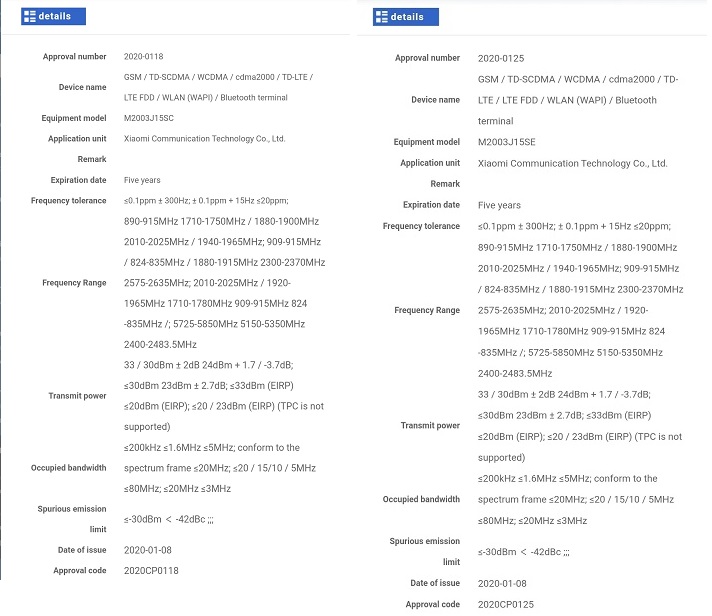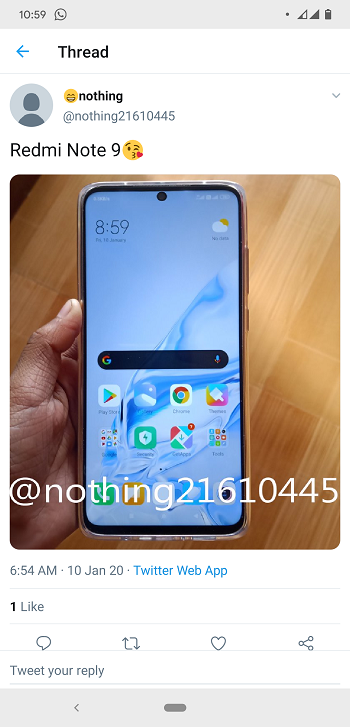The Redmi Note line of smartphones has a distinct position in Xiaomi’s portfolio. Traditionally, these devices have been powered by Snapdragon’s capable mid-range 600 series chips. The price-performance ratio makes them quite popular in the mid-range segment.
The last two iterations of the Redmi Note devices have been very well received. Redmi Note 7, despite being almost a year old, is still being sold in many markets. The phone recently received Android 10 update via beta channel.

The Redmi Note 7 lineup was launched in March 2019 while the next iteration hit the market in around six months later. If we consider the trend, then the successor to the Redmi Note 8 series should be unveiled sometime in late February or March of 2020.
Guess what? We are now seeing leaks and rumors surrounding the ninth generation of the Redmi Note family. According to leakster Sudhanshu Ambhore, Redmi Note 9 Pro, which is rumored to have model numbers M2003J15SC/E for its 4G variant, has cleared the MIIT certification.

From the certification listing, nothing much is apparent. Other than the model numbers for the upcoming devices, the supported radio frequencies tell us that 5G-only Redmi Note series is still a distant dream.
On the other hand, an alleged hands-on picture of the regular Redmi Note 9 has been spotted. From the image, we see a device with a centered hole-punch display to house the selfie camera. This is awfully similar to what we experience with Samsung Galaxy Note 10 devices.

Not much else is known about these upcoming devices. However, as we approach the official unveiling, we are bound to see more leaks on these devices.
Featured image: Redmi Note 8T
NOTE: We have these and many more Xiaomi-related stories in our dedicated Xiaomi section. Check it out for the very latest on all things Xiaomi.
PiunikaWeb started as purely an investigative tech journalism website with main focus on ‘breaking’ or ‘exclusive’ news. In no time, our stories got picked up by the likes of Forbes, Foxnews, Gizmodo, TechCrunch, Engadget, The Verge, Macrumors, and many others. Want to know more about us? Head here.


